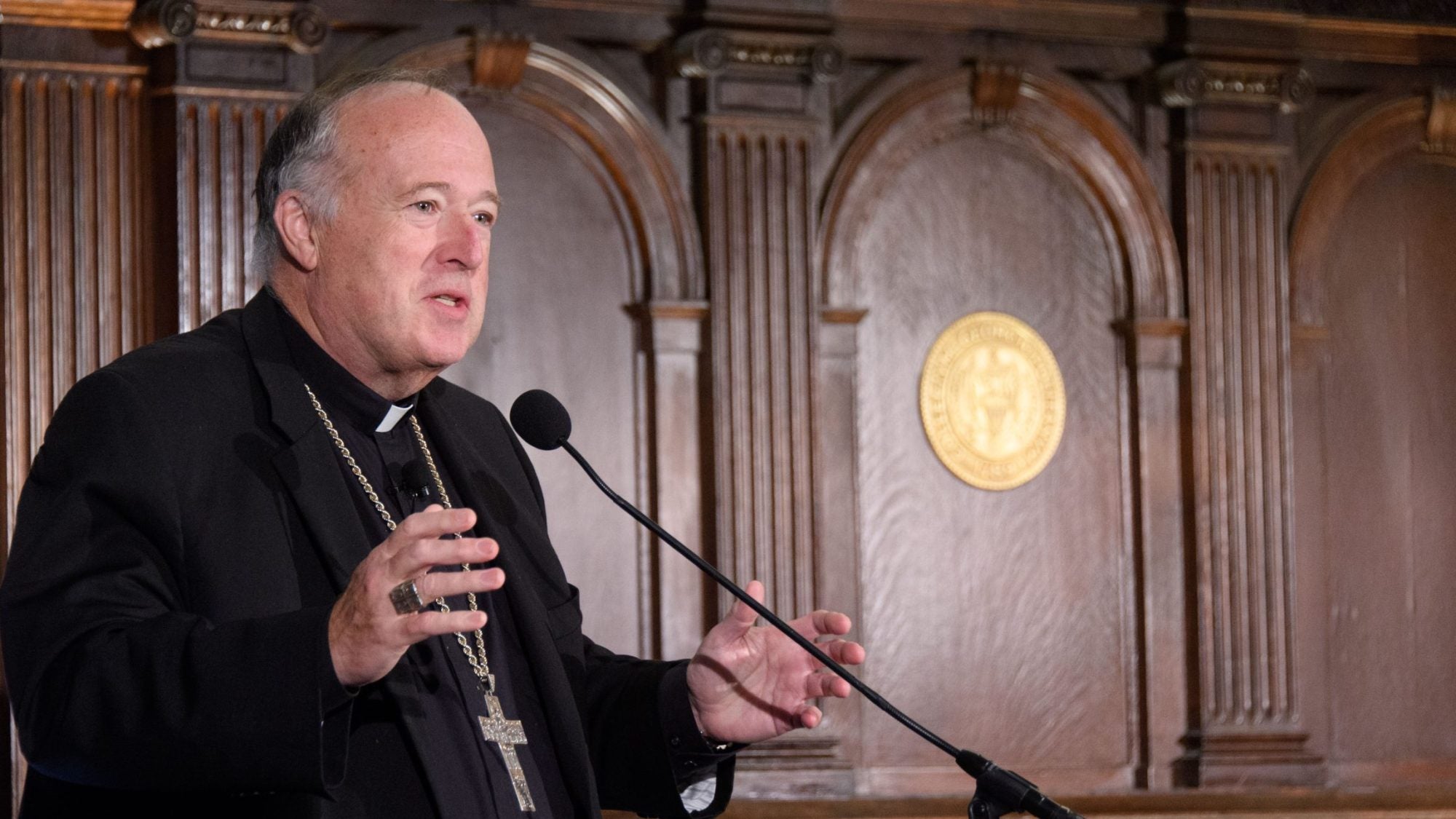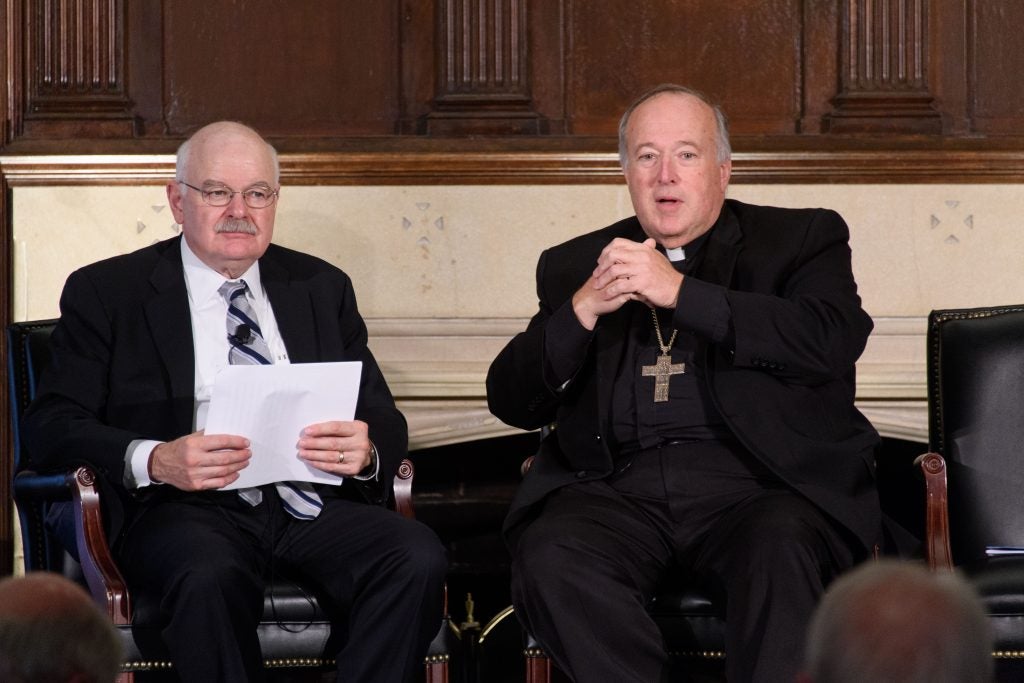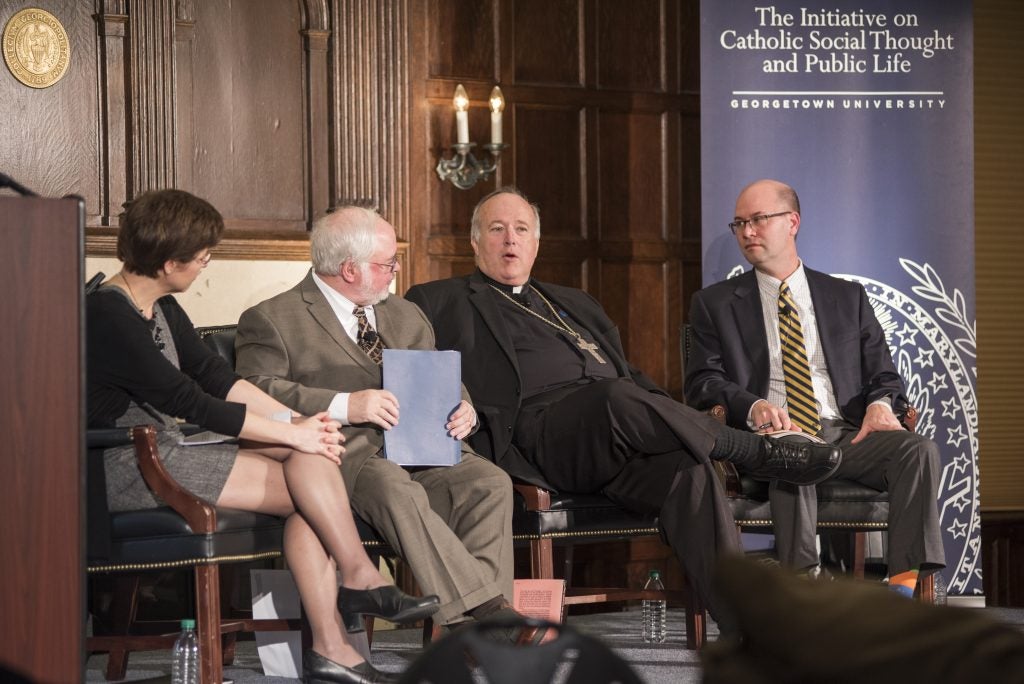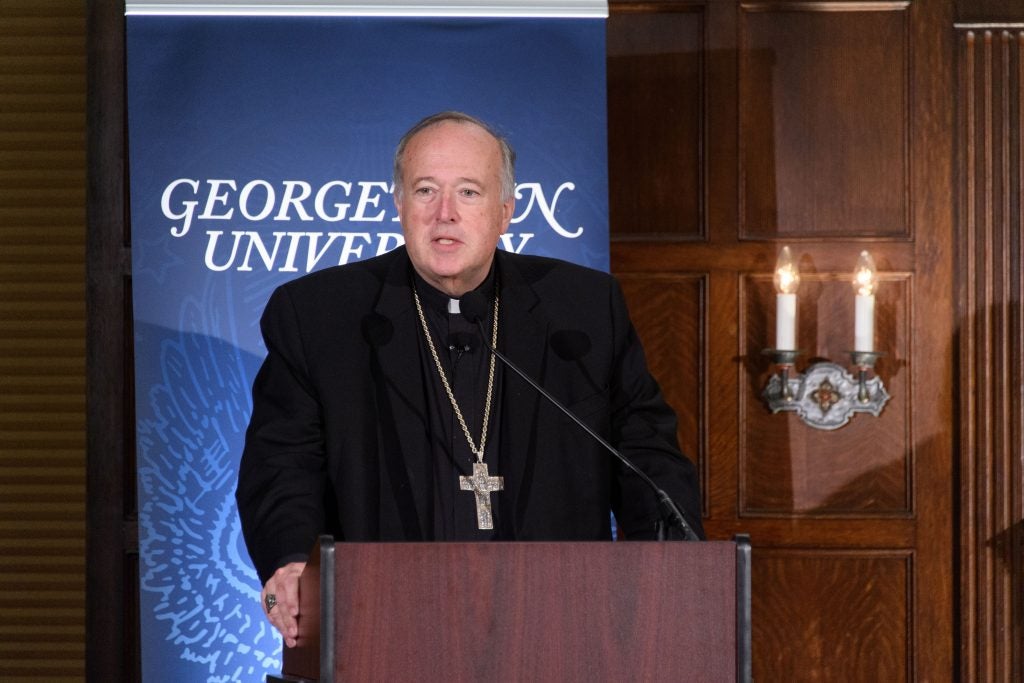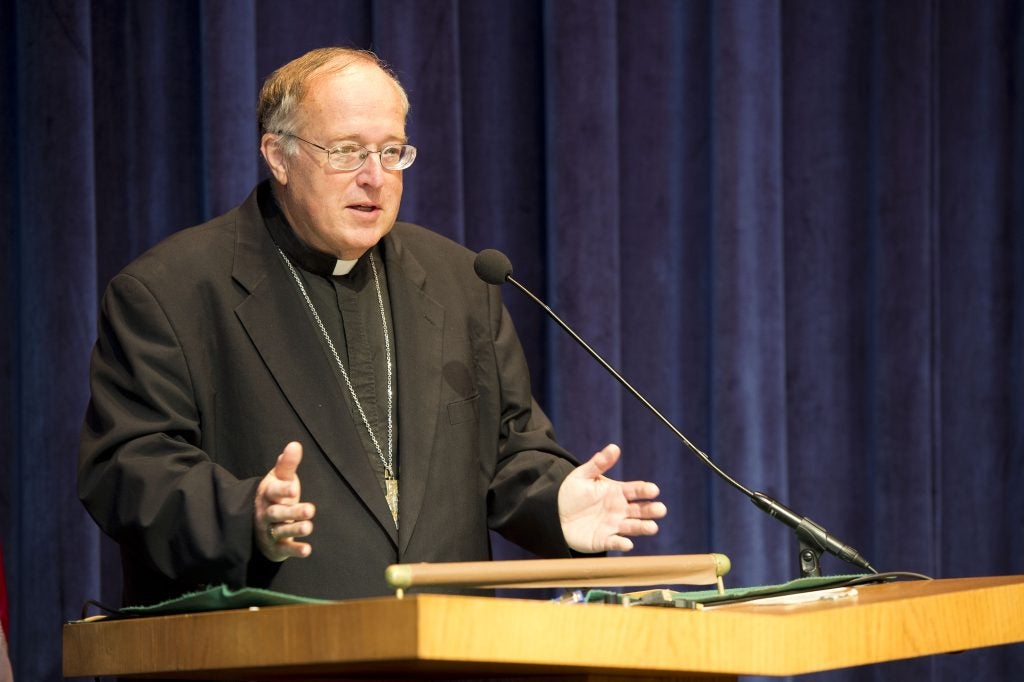“It has been a privilege to welcome Cardinal McElroy to Georgetown over the past years to speak about our responsibility to the poor, the marginalized and the immigrants of our nation,” said Fr. Mark Bosco, S.J., vice president for Mission & Ministry. “We are excited for his leadership and to continue working with him on important issues at Georgetown, in Washington, DC, and around the world.”
A Pastor at Heart
McElroy served as the sixth bishop of the Archdiocese of San Diego beginning in 2015.
The native Californian felt called to the priesthood from an early age, and entered the seminary in high school, according to the Diocese of San Diego’s website. He earned his bachelor’s degree in American history from Harvard and two doctorates in political science from Stanford University and in moral theology from the Pontifical Gregorian University in Rome.
In addition to his scholarship, McElroy served as a pastor for 30 years before he was appointed auxiliary bishop of San Francisco in 2010 and archbishop of San Diego five years later.
He also has roles in Rome, including as a member of the Vatican’s Dicastery for Promoting Integral Human Development and the Dicastery for Laity, Family and Life. He will be an elector in selecting the next pope.
A Voice for the Vulnerable
Throughout his tenure, McElroy has been an active supporter of immigrants and refugees.
In a 2017 public dialogue at Georgetown on the Catholic theologian John Courtney Murray, S.J., about whom McElroy has published a book, the cardinal spoke of the U.S. immigration system and the need to accompany refugees.
“We have to be in solidarity with them,” he said at the event. “I see the suffering there in this current climate with our broken system on immigration, so our primary role is to minister to them, be one with them, but to empower them also and help them empower us and also through narrative to widen the reach of their stories.
“So many people are paralyzed from doing what they know is the right thing for the good of the country. How do we unbreak that and how can religious communities be of help in doing that?”
McElroy has also been a prominent voice on issues related to politics and the Catholic Church. In the wake of President Biden’s inauguration in 2021, he joined a Georgetown webinar and spoke about the importance of public discourse and bridging differences.
“How do we move toward that sort of dialogue and understand this fundamental truth: political dialogue that looks to the other side,” he said. “That’s what Pope Francis says about engagement and encounter: It means understanding the other person on the other side has some important things to say and beginning with that and then being honest about the issues that we need to advocate for.”
In addition to his leadership roles, McElroy has written two books, The Search for an American Public Theology: The Contribution of John Courtney Murray, published in 1989, and Morality and American Foreign Policy: The Role of Ethics in International Affairs in 1992.
He was a contributor to the Georgetown University Press book A World Free from Nuclear Weapons: The Vatican Conference on Disarmament, edited by Drew Christiansen, S.J., which presents Pope Francis’ historic 2017 address condemning the possession and use of nuclear weapons. Georgetown’s Office of the President co-sponsored the original Vatican conference, which McElroy also spoke at. Over the years, McElroy has also written about “radical inclusion” of divorced and remarried Catholics, women and LGBTQ+ Catholics, in America magazine.
“Cardinal McElroy has lived out Pope Francis’s message of mercy and accompaniment both as a pastor and as a leader,” said Kim Daniels, director of the Initiative on Catholic Social Thought and Public Life and a member of the Vatican Dicastery for Communication. “He now has a distinct opportunity to bring Catholic principles to our capital and advocate for the poor and vulnerable in our national public life.
“We’re grateful for Cardinal McElroy’s past support of and participation in our work at the Initiative on Catholic Social Thought and Public Life and at Georgetown more broadly, and look forward to working together even more closely now that he’ll be here in Washington.”
